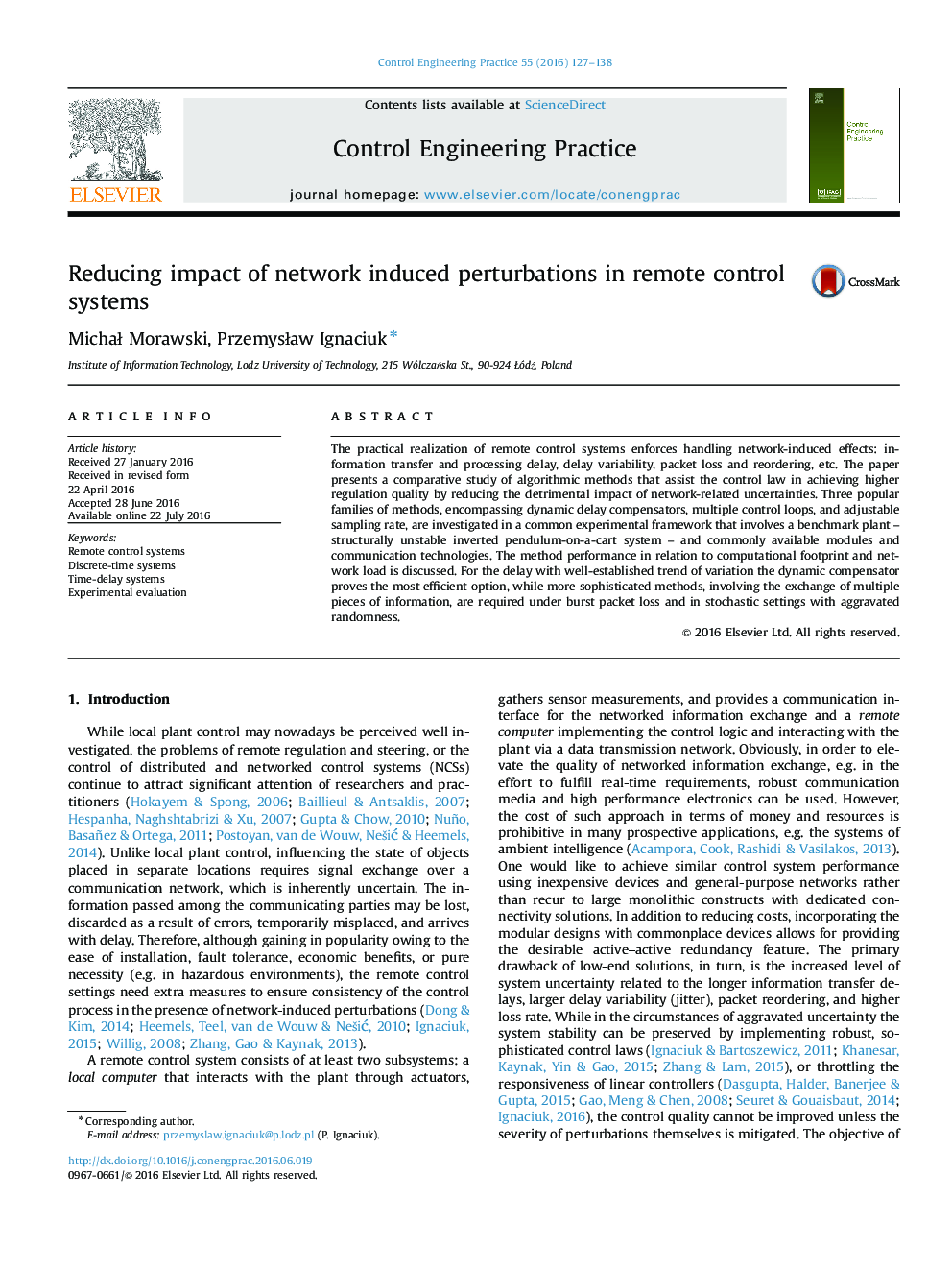| Article ID | Journal | Published Year | Pages | File Type |
|---|---|---|---|---|
| 698963 | Control Engineering Practice | 2016 | 12 Pages |
The practical realization of remote control systems enforces handling network-induced effects: information transfer and processing delay, delay variability, packet loss and reordering, etc. The paper presents a comparative study of algorithmic methods that assist the control law in achieving higher regulation quality by reducing the detrimental impact of network-related uncertainties. Three popular families of methods, encompassing dynamic delay compensators, multiple control loops, and adjustable sampling rate, are investigated in a common experimental framework that involves a benchmark plant – structurally unstable inverted pendulum-on-a-cart system – and commonly available modules and communication technologies. The method performance in relation to computational footprint and network load is discussed. For the delay with well-established trend of variation the dynamic compensator proves the most efficient option, while more sophisticated methods, involving the exchange of multiple pieces of information, are required under burst packet loss and in stochastic settings with aggravated randomness.
